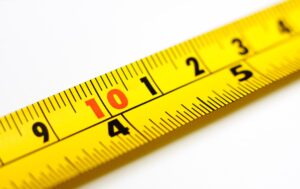In an era where consumer culture and social media often define success and happiness, living within a tight budget can seem less like a choice and more like a last resort. Yet, as we navigate through economic uncertainties, a rising cost of living, and a collective push towards more sustainable living, the constraints of a tight budget reveal numerous unexpected advantages. Here are ten surprising upsides to embracing frugality that might just redefine your notion of being “broke.”
1. Unleashing Creativity and Innovation
Necessity is undeniably the mother of invention, and a tight budget is the playground of creativity. Limited financial resources force you to think innovatively, be it through DIY projects, discovering alternative solutions to everyday problems, or simply finding joy in creating something from nothing. This kind of creativity not only adds a unique zest to life but also hones problem-solving skills that are invaluable across all aspects of life.
2. Mastering Financial Discipline
Navigating a tight budget is akin to a masterclass in personal finance. It teaches you the importance of tracking every expense, differentiating between wants and needs, and planning for the future. This acute financial awareness and discipline lay a solid foundation for managing resources more effectively, ensuring long-term stability and peace of mind.
3. Rediscovering the Joy in Simplicity
In a world with a constant bombardment of messages telling us we need more, living on a tight budget teaches us the opposite. It reminds us that happiness often lies in life’s simplest moments—reading a book, enjoying nature, or spending time with loved ones. This realization fosters a deeper appreciation for what truly matters, leading to a more content and fulfilling existence.
4. Contributing to a Greener Planet
A frugal lifestyle naturally leads to reduced consumption and waste. By making thoughtful purchases, reusing, and recycling, you not only save money but also contribute to environmental sustainability. This mindful approach to living aligns with the growing global consciousness around minimizing our ecological footprint and living more harmoniously with our planet.
5. Building Resilience and Flexibility
Living on a tight budget is not without its challenges. Yet, through these challenges, you develop a resilience that transcends financial aspects. You learn to adapt, make do, and find solutions, precious skills for navigating life’s unpredictable nature.
6. Fostering Authentic Connections
Without funds for lavish entertainment or dining, you’re likely to seek out more genuine and heartfelt ways to connect with others. Simple gatherings, shared experiences, and meaningful conversations often lead to stronger, more authentic relationships that aren’t predicated on spending money but on the quality of time spent together.
7. Escaping the Debt Trap
A tight budget often necessitates living within your means, which naturally steers you away from the lure of credit cards and loans. This debt avoidance spares you the stress and constraints associated with repayments and fosters a sense of freedom and autonomy in your financial life.
8. Gaining Clarity on What Truly Matters
When resources are limited, you’re compelled to scrutinize your spending, which, in turn, brings clarity to your values and priorities. This reflective process allows you to align your lifestyle more closely with your values, leading to a more authentic and fulfilling life.
9. Embracing Self-Sufficiency
The constraints of a tight budget often lead to learning new skills out of necessity, whether it’s cooking from scratch, repairing items instead of replacing them, or growing your own vegetables. These skills not only save money but also instill a profound sense of self-reliance and empowerment.
10. Laying the Groundwork for Future Prosperity
Interestingly, the habits cultivated from living frugally—such as saving diligently, investing wisely, and making thoughtful financial decisions—can significantly contribute to future financial success. When your financial situation improves, the principles and practices honed during tighter times ensure you manage your increased resources wisely, avoiding the pitfalls often accompanying financial windfalls.
These Benefits of Living on a Tight Budget Show There’s an Upside to Being Broke!
Living on a tight budget may initially seem daunting, but it harbors many unexpected benefits that extend well beyond mere financial savings. From fostering creativity and resilience to promoting environmental sustainability and deeper human connections, the advantages of a frugal lifestyle are profound and far-reaching. Embracing the constraints of a tight budget paves the way for a more stable financial future and enriches your life in ways money cannot buy, illustrating the timeless truth that sometimes, less truly is more.
Read More:
9 of the Most Common Reasons People End Up Broke
The Psychology of Poverty: 18 Surprising Effects of Being Broke on Your Mind










































